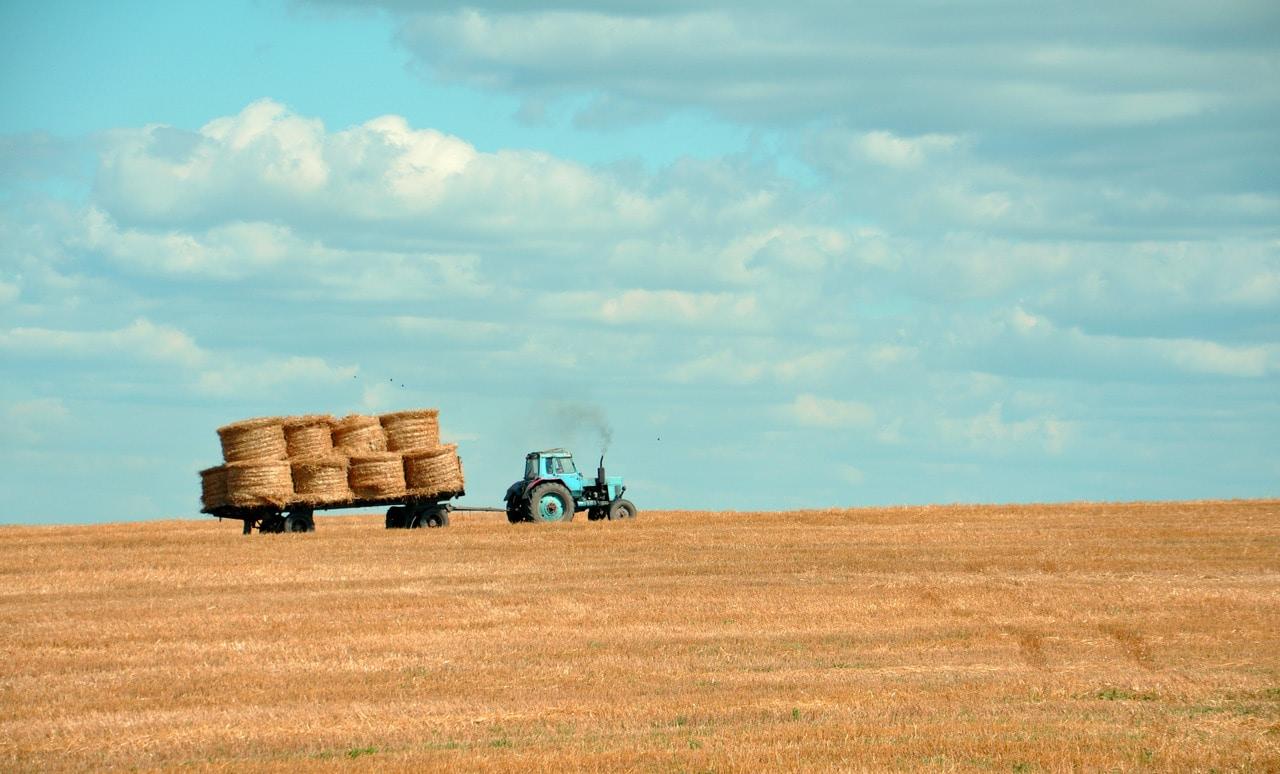There could be no more aptly named programme than subsidies; a Latin word meaning 'help', 'assistance', or 'reinforcements' when used in a military context. However, these days, many people see subsidies as unnecessary meddling in economic matters.
It's not just economists and political scientists saying that, either. Taxpayers are growing increasingly frustrated that their mandatory contributions are being misspent. Considering the broad range of subsidies currently on the books, perhaps there's a reason for that ire.
| An Overview of Subsidies |
|---|
| Subsidies are financial assistance given to companies, businesses and individuals. NGOs may provide subsidies but governments shoulder most of the burden. |
| Examples of subsidies include tax subsidies, transportation subsidies, employment subsidies, housing subsidies and consumer subsidies, among others. |
| The best alternatives to subsidies are partnership programmes that, over time, help entities become financially independent. |
| Agriculture subsidies are in a class by themselves; these subsidies are more of a compensation than a gift or grant to farmers. |
But then, we can't take subsidies at face value and decry them all. We have to consider their intent - help and reinforcement, and their effects on our economy and our lives.
So let's take a close look at selected aspects of government subsidies: what their aim is, who they benefit and how subsidy-receiving entities could thrive without those grants.

Examples of Subsidies
Subsidies are financial assistance or support provided by a government or other organizations to specific industries, businesses, individuals, or groups. The primary purpose of subsidies is to promote economic activities, achieve social objectives, or support particular sectors that may be deemed important for various reasons.
There are different types of subsidies, and they can take various forms, including:
- Direct Subsidies: This involves providing financial assistance directly to individuals, businesses, or sectors. For example, a government might offer cash grants, low-interest loans, or tax breaks to encourage the development of a specific industry.
- Indirect Subsidies: These are subsidies that do not involve direct cash payments but provide support in other forms. Indirect subsidies can include things like price supports, trade barriers, or regulations that benefit a particular industry.
- Consumer Subsidies: These subsidies aim to reduce the cost of goods and services for consumers. For instance, a government might subsidize essential goods like food or energy to make them more affordable for the general population.
- Production Subsidies: These subsidies are designed to support the production of specific goods or services. This can involve direct payments to producers or incentives to increase output.
Subsidies can have both positive and negative impacts. On the positive side, they can stimulate economic growth, encourage innovation, and support industries that are considered vital for national development. However, they can also lead to inefficiencies, distortions in market competition, and economic dependencies. Critics argue that subsidies can sometimes favor specific groups at the expense of others and may not always result in the intended benefits.
Governments in general and the UK government often use subsidies strategically to address market failures, promote social welfare, or achieve broader policy goals. The effectiveness and appropriateness of subsidies depend on the specific context and the goals policymakers aim to achieve.
Subsidies for Farmers
We'll start with farm subsidies because they are the most necessary, and the most misunderstood. Let's put that in perspective.
We need shoes and clothing, but maybe not entire wardrobes full. We need transportation but, for those who live where public transportation is available, perhaps car ownership isn't necessary. We're privileged to live in a time of hyper-connectivity - we may even argue that being connected is a must nowadays, but we don't need the latest gadget, nor one with all the bells and whistles.

All of those industries - production and transportation, communications and manufacturing receive subsidies in one form or another; some benefit from multiple subsidies. Why do agricultural subsidies bear the brunt of public wrath?
We need food. For our health's sake, preferably not ultra-processed but even if we're talking about processed foods, the basic ingredients - grains, meat, and all the stuff that comes out of tins has to come from somewhere.
More specifically, this bounty we're privileged to consume isn't the result of haphazard growth; edible things that we happened to have found whilst out meandering; they are planted, nurtured, cultivated, harvested and made ready for consumption.
That's the farmers' job. Why shouldn't they be compensated for it?
Here, a clever interlocutor might posit that the money they earn from their harvest represents their earnings; why should they receive additional monies?
We'll leave off the vagaries of the commodities market and the fact that a poor harvest or two could sink a farmer - as could a climate catastrophe such as flood, fire or tornado. We need to look beyond agriculture to all of the non-agricultural work that farmers do.
In less than 200 years, the human species has wreaked havoc on this planet. Now, somehow, toxic waters, contaminated lands and felled forests must be remediated if we're to avert the worst of what climate change could throw at us.
Farmers are at the forefront of that effort. Shouldn't they be compensated for it?
To learn more about agricultural subsidies and how farmers are compensated - especially post-Brexit, we encourage you to read our in-depth analysis on the subject.

Other Examples of Subsidies
Regardless of how any government classifies its ideology - capitalist, socialist or communist, enterprise is the economic engine that drives them all. Taking that point a bit further, one might even say that, whether communist or socialist, governments all over the world encourage economic growth through capitalist enterprise.
We're witnessing a sterling example of such now, with the attempts to privatize parts of the NHS.
Debating the merits of one ideology over another is a task for another day; here, we lay out ways that governments fuel those economic engines with subsidies.
Let's hold this idea, given to us by the Father of Modern Economics, as we explore a common occurrence in today's business world.
Factory XYZ has operated in the same location for 75 years, providing employment for generations of that region's inhabitants and stimulating the local economy. However, costs are rising: taxes, production costs, retirement contributions, the cost of importing raw materials... And labour costs! Everybody wants a pay hike!

XYZ's board of directors decides that they could better protect their bottom line if they moved their operation to a developing nation. Startup costs might be high and training new workers would take time, but they'd be closer to their materials suppliers and import tariffs would be less than what they're paying in taxes now.
They're acting in their best self-interest in making this move, aren't they? So will their local government, by offering subsidies in form om financial support.
If XYZ moves, hordes of people would be unemployed. If they're not working, they're not earning and, thus, have no money to fulfil their roles as consumers. The region would lose valuable tax revenue, and they'd have to curate the left-behind infrastructure - a hefty price tag for nothing in return.
So, the government, acting in its own self-interest, offers XYZ concessions. They have many options are on the table:
- tax breaks: a lower tax or waiver; maybe taxing a portion of production or imports
- interest-free loans: XYZ can use to expand their facilities and hire more workers
- grants for research and development
- rent rebates on leased facilities
- accelerated depreciation on new properties they might develop for company expansion
- carbon capture credits to offset the factory's impact on the environment
These are just some examples of subsidies; there are plenty of others and, to make matters confusing, there are different classifications of subsidies. We invite you to read all about them.
How Subsidies Affect the Economy
If Adam Smith was right about an 'invisible hand' keeping markets in balance, what does the decidedly visible hand of government money do to them?
Markets strive for competitive equilibrium, meaning that producers price their goods at exactly the amount that consumers are willing to pay for them. If the goods are priced too high, nobody will buy them and, should they be priced too low, supplies will quickly run out, leaving nothing to sell.
If consumers receive subsidies, they have more means of buying goods and, if producers receive such grants or tax breaks, they will be compelled to produce more. Either way, the result is market inefficiency. From there, things get worse.
The effects of subsidies in one country or industry impact other nations and spheres of economic interest. For instance, subsidized products exported to other markets lower the value of goods those markets produce.
To get an idea of how that could be, we only need to reflect on fast food industry giants such as McDonald's and Starbucks claiming the lions' share of leisure consumption, wherever they happen to be.

Subsidies may prove vital to growing the economy in the short term but, over time, they may cause negative unintended consequences or even be deemed unethical. Even agricultural subsidies, necessary as they are, may harm the economy.
With such harm becoming more visible - particularly after the 2008 global economic meltdown, the debate continues over why governments continuously meddle in economic affairs. Everyone should be an informed consumer and participate in these conversations.
Alternatives to Subsidies
With all the potential for harm inherent in subsidies - and, yet, with them being such an integral part of today's business and economic frameworks, what can be done to reduce their negative impacts while still providing all the benefits?
Maybe Adam Smith had it right, way back when. Perhaps people who protest against subsidizing major corporations with fat bottom lines are, too. Let the markets strive for competitive equilibrium.
That doesn't mean that the government shouldn't lend a helping hand; only that the incentives should last only as long as necessary.
Let's pay XYZ another visit. They're still contemplating their move abroad; their focus is the same as any other capitalist venture: profits. One way the government can entice them to stay put is to offer subsidies, but only on the condition that the company reports on how that money is spent and what's being done with it.
One of the main triggers of ire over subsidies is that they're seldom monitored. A tax break or chunk of money is granted but little happens to change the condition that provoked the need for the subsidy. Attaching conditions that reflect the amount of the subsidy would be a fine way for the government to make sure taxpayer money isn't perpetually handed over with no questions asked.
Another good way to cut down on subsidies is encouraging producers to make money off of their assets.
More and more, around the world, we find that farmers are sacrificing a part of their land to solar arrays, or smaller plots to wind turbines. This isn't a matter of trading food production for energy generation; it's a pragmatic way to put to use land that might otherwise lay fallow.
In the last 20 years alone, the world has seen three major economic quakes: the dot.com bubble (1999), the global financial downturn (2008) and, now, pandemic-induced economic destabilization. Today, subsidies provoked by these events are ongoing, and more have been added to the roster.
Government coffers are not bottomless; it's unsustainable for leaders around the world to continuously raise citizens' taxes only to hand the money out in subsidies.
We have to find more alternatives to subsides; fortunately, there are more options than these two to consider.
Summarise with AI:
























